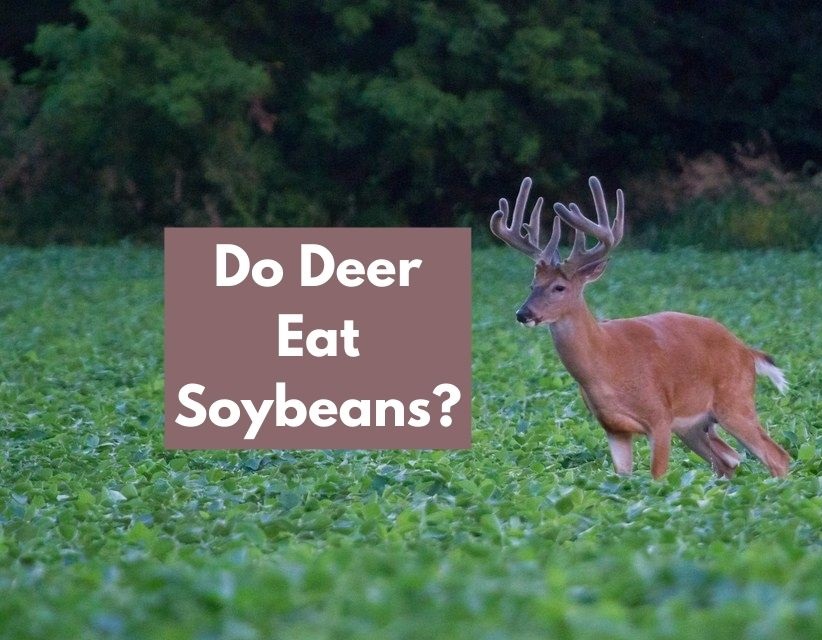There are a lot of myths out there about what deer do and do not eat. One common question is: do deer eat soybeans?
Yes, deer love to eat soybeans year-round. Deer are attracted to soybeans because they like the taste, are packed with protein, and easy for them to digest.
Considering that a single deer can eat several pounds of plants each day, you can see how deer eating soybeans can really do some serious damage to your crop!
In this article, we’ll discuss how to stop deer from eating your soybeans along with the benefits of using soybeans to attract deer.
Why Do Deer Eat Soybeans?
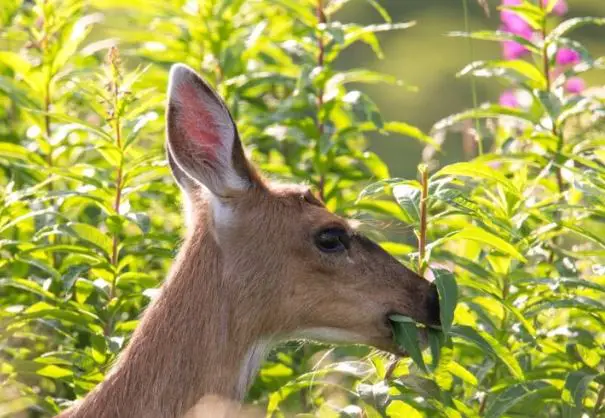
As we covered, deer will eat as much soybeans as possible when they’ve got the chance.
But why do they do this?
Deer like plants that contain nutrients they need and are accessible nearly year-round, and soybeans check every box.
Soybeans taste great to deer, as they love grassy and beany foods.
Deer can do some serious damage to a large amount of soybean plants in a single sitting if they’re hungry enough!
This was confirmed in a 1999 study on deer plant eating habits by Soybeansell University.
Crops like soybeans contain carbs, protein, and nutrients, which makes them an ideal food source for deer.
And don’t think that your newer soybeans fields are safe either: deer actually prefer new growth because they’re more tender.
Additionally, deer will consume a wide variety of foods like soybeans based on opportunity.
In fact, people specifically choose to grow soybeans for food plots to attract deer.
If you’re not convinced, leave some soybeans out or plant some and wait to see what happens!
What Kind Of Soybeans Do Deer Like?
Deer will eat all kinds of soybeans, including yellow, green, black, red, brown, white, and kurakake soybeans.
When Do Deer Eat Soybeans?
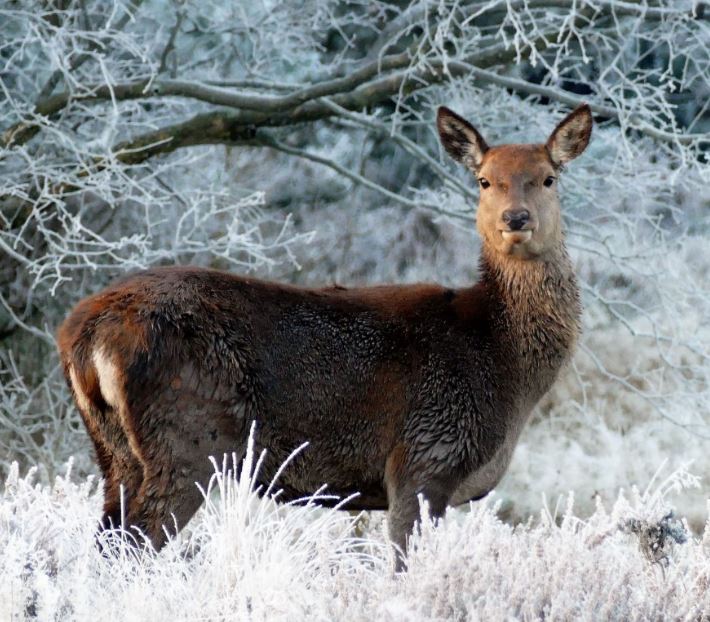
Deer will eat soybeans year-round until there’s nothing left in the field!
As other food sources are depleted they’ll hit the soybeans even harder.
Typically you’ll see deer eat the soybean pods first during spring, summer, and fall, and then they’ll begin eating the soybean vines throughout the winter.
Do Deer Eat Soybeans After They Turn Brown?
Yes, deer will continue to eat soybeans after they turn brown.
Although deer prefer soybeans when they’re young and at the most tender, they’ll happily munch away on soybeans all year long regardless of the soybean’s growing stage.
Do Deer Eat Dried Soybeans?
Deer will eat nearly anything if they’re hungry enough, including dried soybeans.
You can scatter them on the ground or put them in a covered feeder to attract deer to your area.
Planting Soybeans For Deer Food Plots
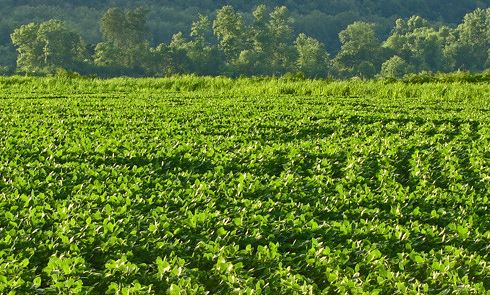
You can plant soybeans purposely to attract deer as part of a food plot and will almost certainly see success in this strategy!
Ideally the deer in your area will already be used to having some soybeans in their diet.
If there are no soybeans in your greater area, you might hold off on introducing entirely new food sources like soybeans.
It can interrupt their normal food search patterns and make them completely reliant on the soybeans you’re planting as their new winter food source.
How Do I Keep Deer From Eating My Soybeans?
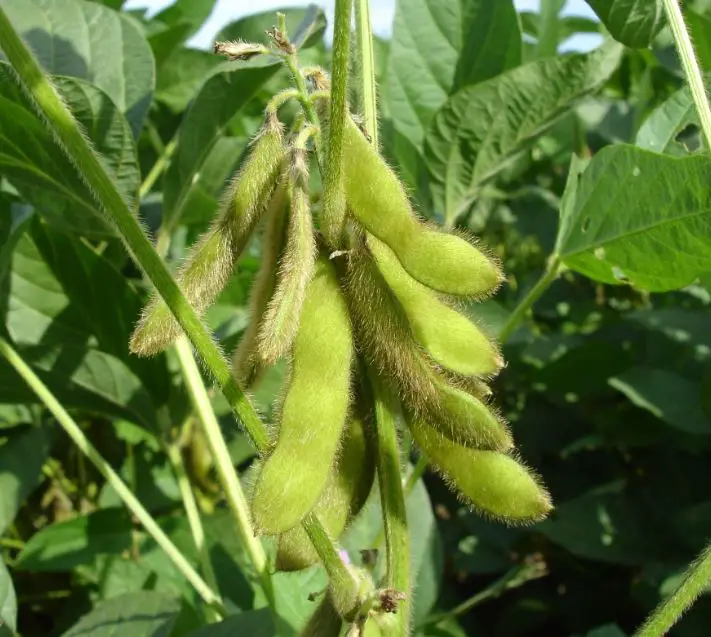
Most folks investigating whether deer like soybeans are trying to find ways to attract them.
If you’re in the other camp and want to protect your soybeans crops from deer, we’ve got some great options for you.
There are a few things to keep in mind when you’re protecting soybeans from hungry deer: their habits, your scent, repellent options, and when you plant them.
Deer will eat nearly anything if they’re hungry enough, so your main goal is making your garden as least inviting to deer as possible.
Check out our guide on how to keep deer from eating plants where we cover 25 quick and easy tips for keeping hungry deer out of your garden.
Will My Soybeans Grow Back After Deer Eat Them?
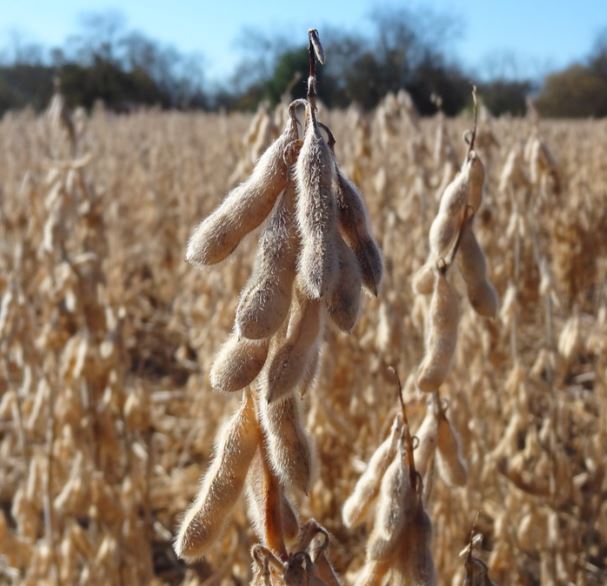
As long as the growing point of the soybeans is not damaged, your soybeans can usually bounce back after being eaten by deer.
Once deer eat soybeans, the plant will sprout new branches and begin to regrow.
Just continue regular watering, fertilization, and other care of your soybeans until they’re back to full health.
Are Soybeans Good For Deer?
Soybeans are very healthy for deer to eat, which is one of the reasons deer are attracted to them.
Feeding deer soybeans provides them with critical macronutrients like protein and fat, plus some much-needed digestible fiber.
Soybeans also provides deer with the following vitamins and minerals:
- Calcium
- Phosphorous
- Potassium
- Magnesium
- Manganese
- Zinc
These vitamins and minerals provide deer with many benefits.
Deer need calcium for bone, teeth, and antler growth and health as well as other bodily functions like milk production and metabolism.
Potassium is great for deer because it helps maintain good pH balance and aid in proper digestion.
Magnesium is great for antler growth, increasing body weight, and has immune system benefits for deer.
Manganese assists deer in growth, respiration, and reproduction.
A 2007 study showed that zinc can assist in growing larger antler sizes in white-tailed deer.
Phosphorus also aids deer in body and antler growth.
Fat-Soluble Vitamins For Deer
Zinc can be fat-soluble, so it can be stored in the deer’s fat and liver to be used later as needed.
This means that zinc content from deer eating soybeans can be “stored up” for later use, which is highly beneficial.
Water-Soluble Vitamins For Deer
Vitamin C, B Vitamins, niacin, folic acid, and potassium are all water-soluble, which means they cannot be stored, so they must be replaced continually.
So a deer that eats soybeans for the potassium content must continue to consume foods that contain these necessary vitamins to stay healthy.
Do Deer Eat Soybeans? Wrapping Things Up
So, do deer eat soybeans?
Yes- deer eat soybeans whenever and wherever they can.
They’ll eat different types of soybeans and nearly all parts of the plant because they love the taste and it provides them with the nutrition they need.
Have any observations to add to the discussion? Be sure to let us know in the comments below.
Check our our other helpful wildlife guides while you’re here:

